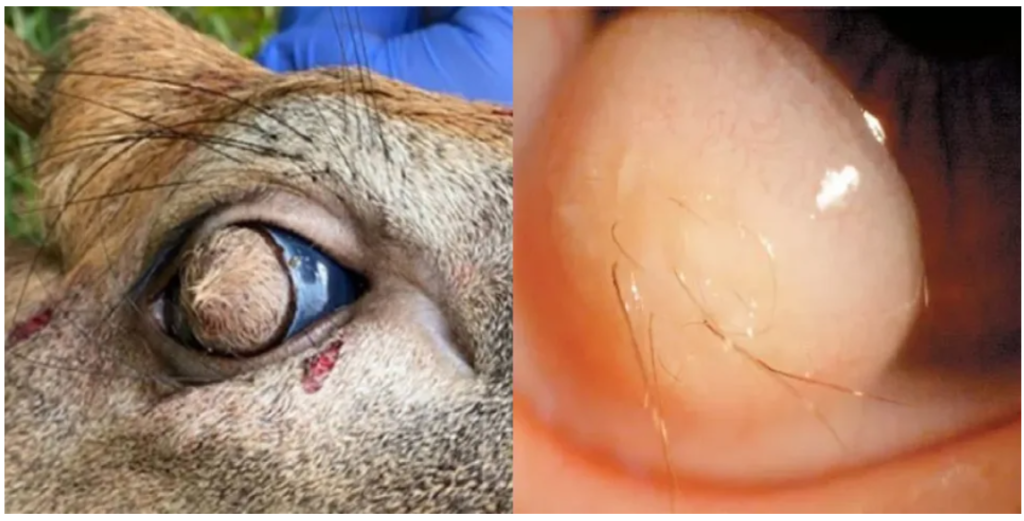
I’ve stared at this question for about 5 minutes now, just wondering how did I not notice this before?

Picture the street outside your home. Now erase the power lines. Imagine interstate highways without the unsightly cable towers that dot the expansive United States landscape. This could be the wireless future of energy if a partnership between New Zealand’s government and a startup called Emrod works out—and it all dates back to the wildest dreams of Nikola Tesla.

As amazing as it often is, biology can be equally messed-up up at times.
In Tennessee, U.S., a whitetail deer was found ambling around the streets with a condition that made it appear as if it had hair growing on its eyeballs. Yes, you read that right.

Every so often there are reports that an asteroid is passing close to Earth, with the most recent story claiming one the size of the Eiffel Tower will be zooming past our planet. Dinosaurs also famously became extinct after an asteroid collided with our planet 66 million years ago. But what is the likelihood of it happening again?

Earth is spinning unusually quickly – and last year saw the shortest day since people started counting.
In fact, 2020 saw the 28 shortest days since 1960, beating the previous shortest day in 2005, according to TimeandDate.com.

Here’s an update of a Victorian plaything. Cut out the fish on the dotted line and float it on a pan of water. Place a single drop of olive oil in the circle. The oil quickly spreads out the slit and across the water. The fish “swims” in the opposite direction, like an exhaust-spewing rocket subject to Newton’s third law of motion. Sadly, the soggy paper fish is only good for just a single use.

It is not often that a comedian gives an astrophysicist goose bumps when discussing the laws of physics. But comic Chuck Nice managed to do just that in a recent episode of the podcast StarTalk.The show’s host Neil deGrasse Tyson had just explained the simulation argument—the idea that we could be virtual beings living in a computer simulation. If so, the simulation would most likely create perceptions of reality on demand rather than simulate all of reality all the time—much like a video game optimized to render only the parts of a scene visible to a player. “Maybe that’s why we can’t travel faster than the speed of light, because if we could, we’d be able to get to another galaxy,” said Nice, the show’s co-host, prompting Tyson to gleefully interrupt. “Before they can program it,” the astrophysicist said,delighting at the thought. “So the programmer put in that limit.”